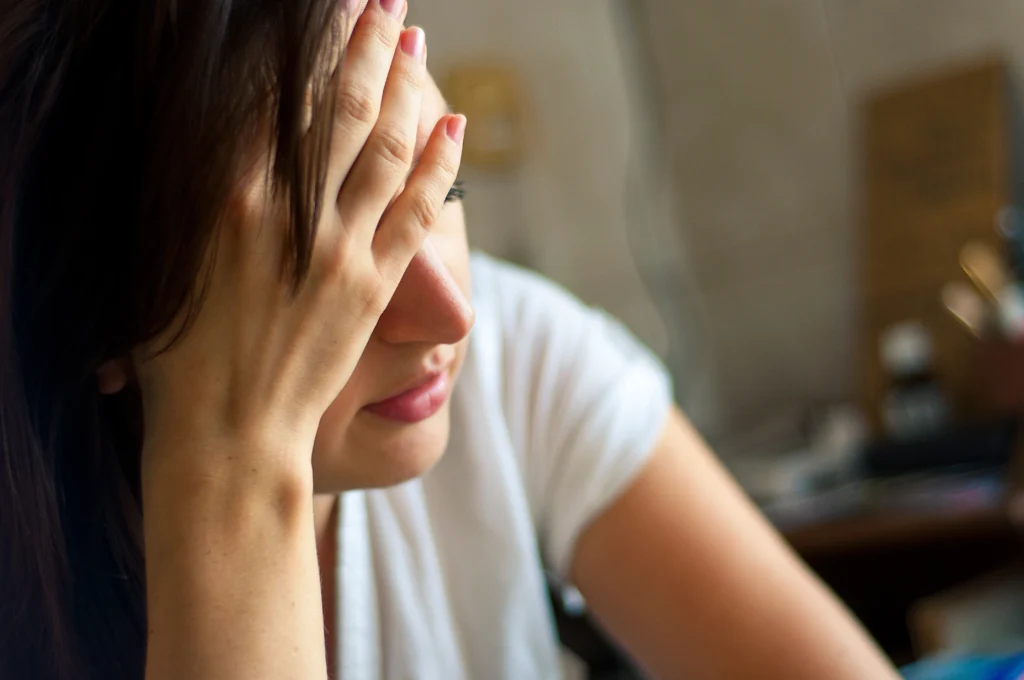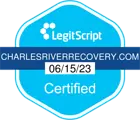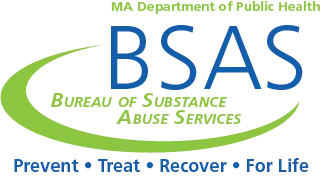Does Withdrawing From Alcohol Cause Fatigue?
People who have an alcohol use disorder (AUD) typically experience withdrawal symptoms after they stop drinking. This can include occasional fatigue and even chronic fatigue. Weariness and the degree of it vary from person to person. Fatigue certainly affects you physically but also mentally and emotionally. Many people understandably become overwhelmed. They have quit drinking and expect to feel better but now feel worse. This is why it is so important to work with professionals who will find the right treatment plan for you and help you navigate it to reach your goals.
What Is Alcohol Detox?
Alcohol detox is an individualized treatment program through which we help clients overcome their alcohol use disorders. Unsupervised alcohol withdrawal or “going cold turkey” is potentially dangerous and may result in symptoms as severe as seizures and hallucinations. With professional guidance, you can avoid many withdrawal symptoms and mitigate those that you do experience.
Detox begins with an evaluation phase through which our medical professionals assess the client and plan the treatment. The next step toward recovery is stabilization. Through stabilization, we ensure that clients know what to expect. Then, we help them cope with any withdrawal symptoms through medical supervision and perhaps medication. This phase transitions into early abstinence. This is where the client ceases all alcohol consumption, and we continue to manage both psychological and physical symptoms. The final stage in the near term is maintenance, which involves learning how to remain sober. After about five years of sobriety, you enter advanced recovery, which is the true final phase.
What Is Fatigue?
Fatigue is more than just being tired. There are many reasons for fatigue. That can include ceasing alcohol consumption. If the fatigue is occasional, it likely is not a withdrawal symptom. Fatigue is a constant feeling of lacking energy and motivation. It can also manifest with many other symptoms, which include:
- Dizziness
- Irritability or moodiness
- Headaches
- Difficulty concentrating or learning new tasks
- Apathy and lack of motivation
- Gastrointestinal problems
- Muscle aches and weakness
- Slowed response time
- Blurry vision
It is also important to note that your fatigue may not be caused by alcohol withdrawal directly but rather by mental health conditions and lifestyle changes that the withdrawal causes. It is common for people who have an alcohol use disorder to experience anxiety or depression after they stop drinking. Both of those conditions can cause fatigue. It is also possible that you are not sleeping well or eating well, and those can be lifestyle-related causes of fatigue as well.
The Timeline of Alcohol Withdrawal
There are three main periods within the alcohol withdrawal timeline . When symptoms start depends on how much you drank and for how long. The initial phase can start within six hours after the last drink. These symptoms are usually mild but can lead to fatigue. They include anxiety, headaches and insomnia. The second period usually begins between 12 to 48 hours after the last drink. Fatigue can be particularly heightened by this point, and those who suffer severe symptoms may experience hallucinations and seizures. The final period begins between 48 and 72 hours after the last drink. This is when delirium tremens (DTs) usually occurs if it is going to appear. Only about 5% of people will experience delusions in this period, and those that do may also experience:
- Fever
- Confusion
- Racing heart
- Heavy sweating
- High blood pressure
Common Signs of Fatigue and When to Seek Help
Keep in mind that fatigue can manifest differently for everyone. You may feel tired, but you may also feel a lack of motivation to the point of apathy, not caring what happens. For some, the lack of energy will become drowsiness, the feeling that you need to sleep. Grief, anxiety and depression are other symptoms you may notice.
When should you seek professional attention? There are several factors to consider. The first is to realize that your alcohol cessation may be the cause. Consider your medical history. Think about what other causes there could be. If at any point you feel like your fatigue is more serious than you have experienced in the past, it is time to seek help. You need to do that right away if your fatigue is accompanied by any of the other symptoms we have discussed here.
How Fatigue From Alcohol Withdrawal Can Affect Your Daily Life
Fatigue during withdrawal can interfere with your ability to work and take care of yourself and others. While fatigue from alcohol withdrawal is not necessarily different than fatigue from other sources, you are facing additional challenges that can make it worse. When overcoming alcohol use disorders, you need to have good lifestyle habits. Those habits should also help you to avoid fatigue.
If you experience insomnia, that sleep deprivation may make the fatigue worse and interfere with maintaining healthy habits. If you find yourself unable to get out of bed or consider calling into work sick even though you are not, these are signs that you need help with your fatigue.
How Fatigue Is Diagnosed
It is critical that you tell your doctor about your alcohol use disorder and cessation. They will review your medical history and perform a series of tests to determine if the fatigue is more than simple tiredness. If it is, then the doctor will determine if it is a symptom of your alcohol withdrawal. In that case, your doctor is likely to recommend a treatment program through which you can manage the fundamental issues you are experiencing and not just the symptoms. If alcohol is not the issue, the doctor will work with you to explore the lifestyle habits that may be causing your fatigue. If you rule out lifestyle causes, the next phase will be a series of medical examinations and tests to find out if an underlying medical condition is causing your fatigue.
Ways to Combat Fatigue From Alcohol Withdrawal
The first step is to ensure that you are getting a good night’s sleep. If you are dealing with insomnia, then you must seek help for that right away, as it will undermine all your other efforts. If you are not sleeping well but do not have insomnia, follow this advice from the Centers for Disease Control and Prevention (CDC). Develop a bedtime routine, and stick to it. Make your bedroom a relaxing place based on your preferences. Avoid large meals or caffeine before going to bed. Eliminate electronic devices from your bedroom. Screen time can make it difficult to get to sleep particularly among people who are prone to sleep troubles. You may also want to get some exercise and take a shower right before you go to sleep.
Exercise is one of the most powerful tools at your disposal when it comes to combating fatigue. It is worthwhile even if you are not fit and tire easily. Exercise multiple times for as long as you can. The amount of time you can go will begin to ramp up as you stick with it. Some people worry that the exercise will make their fatigue worse. This is generally not the case with fatigue due to alcohol withdrawal. It will make you feel a little better at least, and the degree of the effect it has is likely to increase over time. Note that this is not necessarily the case with chronic fatigue, as exercise can make it worse.
Diet is another important tool at your disposal. An advantage of our program here is that we can help you come up with an eating plan that is best for your unique situation. The key here is to maximize your nutrition and not to go on a diet. This is something to discuss with your doctor, but it’s probably not a good idea to go on a low-carbohydrate diet, a low-calorie diet or one that emphasizes high-energy foods. In fact, it’s best to stay away from high-energy drinks and foods when dealing with fatigue. You should, however, take a multivitamin to help cover any gaps in your diet.
Drink plenty of water. Most people do not drink enough, so have a water bottle on hand, and sip from it throughout the day. Get in the habit of eating breakfast to provide your brain glucose as fuel. Avoid eating big meals and skipping meals. It is generally better to eat multiple small meals throughout the day. Many experts recommend six. Focus on vegetables, whole-grain foods and iron-rich foods. Reduce or even eliminate foods that are high in bad fats, sugar and salt.
Reduce stress through stress management techniques. These can include breathing techniques, meditation and listening to music. You can also see a therapist. You need to tell the people close to you what is going on. Finally, learn to do nothing. Take some time for yourself to sit and relax in a quiet room and do nothing at all.
Treatments for Fatigue From Alcohol Withdrawal
Many of the treatments for fatigue involve the techniques described earlier. The main difference is that you will have professionals who offer you their expertise. That includes adjusting your lifestyle habits as needed based on your current fatigue levels and ongoing progress.
If you are experiencing pain with your fatigue, your doctor may prescribe medication. In many cases, that will be as simple as ibuprofen or naproxen sodium. Less commonly, it may require prescription drugs. For people who experience high blood pressure and other issues related to the heart, the doctor may recommend medications to regulate your blood pressure or heart rhythms. In situations involving depression, the doctor may recommend an antidepressant to help with sleep and pain.
Talking with a counselor is very important as well. Fatigue as an alcohol withdrawal symptom almost always has a psychological and physical component. Therapy can make a dramatic difference in how you feel about your fatigue and how you cope with it. You would have access to this type of counseling here at our center. Another advantage to our approach is that you have medical doctors focused on the physical side and therapists focused on the mental side, and they work together to develop a singular strategy.
Treating the Alcohol Abuse Disorder First
If you want to stop drinking and are concerned that you may experience fatigue or other symptoms, we strongly encourage you to consider proactive treatment. If you try to overcome the addiction on your own and run into problems, your experience will likely be much more difficult overall. The other point to consider is that dealing with alcohol withdrawal symptoms is often a short-term fix. It is important to deal with the underlying causes of your alcohol use disorder.
Modern treatment options for alcohol use disorders involve multidisciplinary techniques and evidence-based therapies. A holistic approach does not focus on controlling the alcohol use but rather on improving the individual’s physical, mental and emotional well-being. Cognitive behavioral therapy (CBT) can help you achieve desirable lifestyle habits that are healthier for you.
Personalized treatment plans not only include CBT but collaborative care involving physicians, nurses, clinicians and therapists. It also involves comprehensive aftercare. This way, you are never on your own. Even after you have left the facility, you have a support network available to you at all times.
Seeking Help for Fatigue From Alcohol Withdrawal
If you are experiencing symptoms, including fatigue, from alcohol withdrawal, it is imperative to have support. You should also seek out treatments and programs that will help you achieve your goals. Charles River Recovery is a place where you can find that support and the other resources you need.
We offer an alcohol detoxification program during which our medical and therapeutic staff will help you safely detox. Our state-of-the-art rehabilitation center also offers alcohol clinical stabilization services. That includes 24-hour care while you are here and aftercare when you leave. Contact our team at Charles River Recovery today to learn more about recognizing and dealing with alcohol withdrawal symptoms.






